Physics

Educators and Parents, Sign Up for The Cheat Sheet
Weekly updates to help you use Science News Explores in the learning environment
Thank you for signing up!
There was a problem signing you up.
-
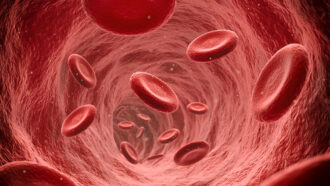 Physics
PhysicsThe movie Frozen inspired the icy, 3-D printing of blood vessels
Ice guides a 3-D printing method to make realistic, artificial blood vessels. One day, such vessels could be used in lab-grown organs.
By Sarah Wells -
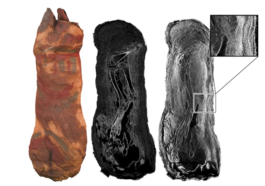 Physics
PhysicsLet’s learn about particles that help us peer inside objects
Particles such as muons, X-rays and neutrons help scientists peer inside fossils, mummies, pyramids, volcanoes and the human body.
-
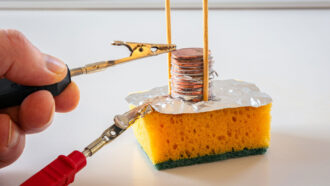 Physics
PhysicsExperiment: Make your own cents-able battery
Make your own ‘voltaic pile’ with pennies and nickels, and find out how many coins will make the most electricity!
-
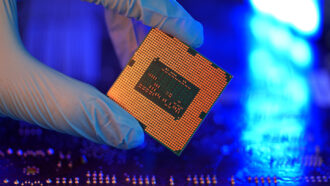 Materials Science
Materials ScienceScientists Say: Semiconductor
Modern electronics, from cell phones to video games, work thanks to these conductor-insulator hybrids.
-
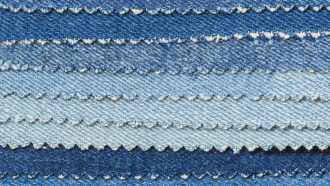 Chemistry
ChemistryTurning jeans blue with sunlight might help the environment
When dipped in indican and exposed to sunlight, yarn turns a deep blue. This process is more eco-friendly than the current denim dyeing method.
-
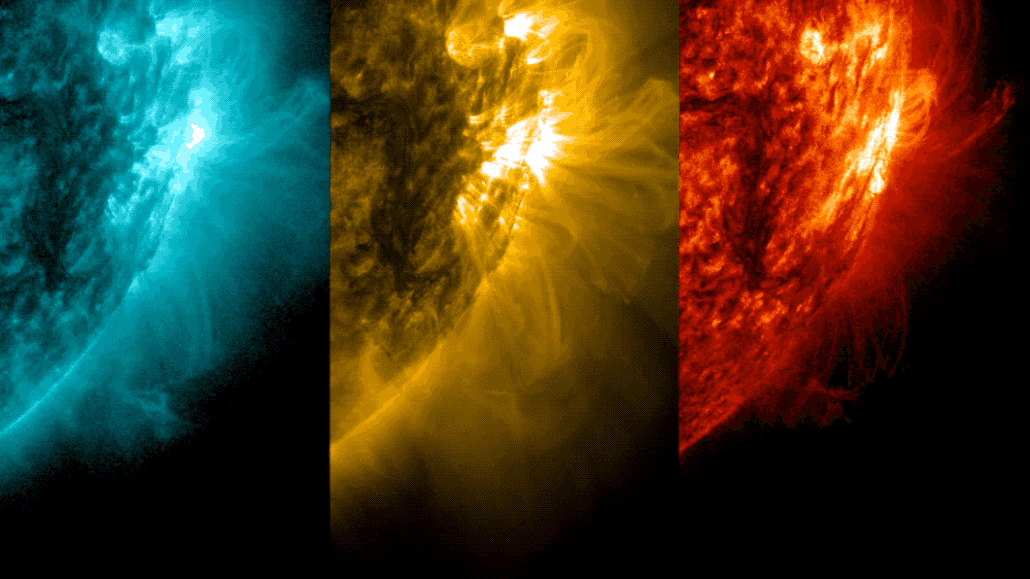 Space
SpaceExplainer: What is the solar cycle?
Here’s what causes the sun’s 11-year cycle of activity and what it means for us on Earth.
By Adam Mann -
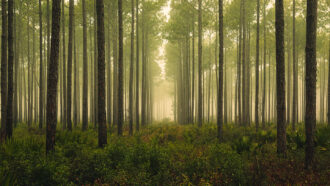 Physics
PhysicsForests could help detect ‘ghost particles’ from space
If trees could act as natural antennas, one physicist proposes that they just might pick up signals of hard-to-spot ultra-high energy neutrinos.
-
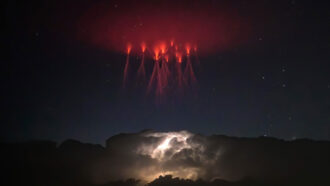 Earth
EarthExplainer: Sprites, jets, ELVES and other storm-powered lights
Fleeting glows collectively known as “transient luminous events” flash in the skies above powerful lightning storms.
-
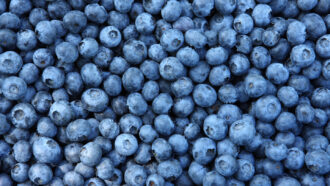 Physics
PhysicsHere’s why blueberries aren’t blue — but appear to be
Blueberries actually have dark red pigments — no blue ones — in their skin. Tiny structures in the fruits’ waxy coat are what make them seem blue.
-
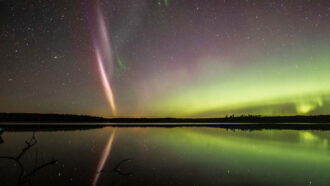 Earth
EarthThe weird sky glow called STEVE is really confusing scientists
Researchers are trying to figure out the recipe of atmospheric conditions that creates this aurora-like light show.
-
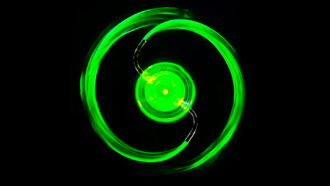 Physics
PhysicsPhysics explains what happens when a lawn sprinkler sucks in water
Experiments with a floating sprinkler revealed the surprisingly complex physics behind a simple question.
-
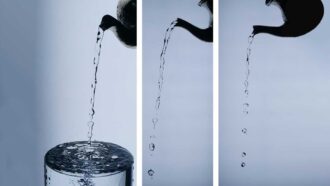 Physics
PhysicsPhysics explains why poured water burbles the way it does
The loudness of falling water depends on the height of the pour and the thickness of the stream.